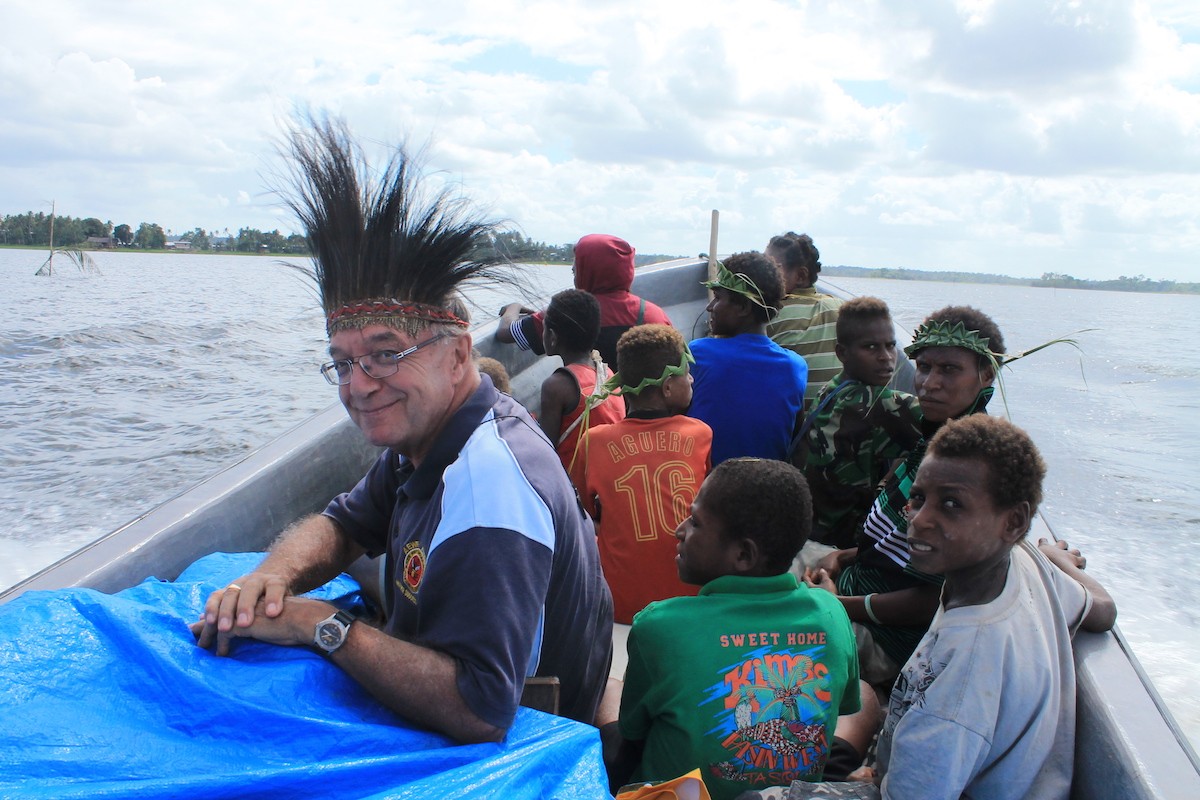A Synod is a meeting of church leaders. For centuries, synods have gathered bishops and lay people to reach a consensus on important issues. The synod does not have the power to make binding decisions. It is purely a consultative body for the Holy Father who makes the final decision.
Pope Francis has held extraordinary synods on the family, young people, and the Amazon. Before each of them, he has encouraged the bishops to hold local listening sessions in their dioceses and has invited more laypeople to participate together with the bishops in Rome.
The different dioceses in Papua New Guinea and Solomon Islands have had representatives of the diocese gather together to discuss this theme on synodality. The people have held Eucharistic celebrations and prayer meetings, reflections, and discussions on several topics and issues that have affected them.
In the Diocese of Daru Kiunga, the Diocesan Assembly was held on the 3rd and 4th of September 2021. It was held at the Blessed Peter ToRot Formation Centre and had as its theme: “Go deeper into the heart of Jesus.” The program was facilitated by Father Andrew Moses, Vicar General of DaruKiunga and Pastoral Vicar of the Diocesan Team of Pastoral Animation.
Present for the entire duration were Bishop-Emeritus, Gilles Cote’ SMM, and Bishop of DaruKiunga Joseph Durero SVD.
The Diocese of Alotau held its synor from 19 to 21 October at the Saint Paul’s Pastoral Centre, Hagita Milne Bay Province. Bishop Rolando Santos, priests, religious, Diocese Ministerial Heads and participants from diocese’s different parishes attended the diocesan synod.
An opening Eucharistic celebration of the synod was held at Hagita Secondary School by His Lordship, Bishop Rolando Santos and concelebrated by priests of the diocese. An evaluation, the Five-Year Pastoral Plan for the Diocese and the Family Life Congress followed the synodal process.
Bishop Rolando Santos together with the organizing committee, Sister Betty and Father Joe Ensing urged the participants to carry on the pastoral planning to as far as the parishes, Catholic Christian Communities and Small Christian Communities of the diocese.
Understanding synodality?
“Synodality” refers to the way decisions are made. It includes listening to people and discussing issues together, paying careful attention to where the Holy Spirit is calling the Church. The Holy Father, Pope Francis, reminds us to be ready to listen humbly and be open to the ideas of others. Thus, no topic is off-limits and disagreement is always welcome.
After the discussions, the bishops of the synod draft a document and vote, paragraph by paragraph, to approve it.
The pope then uses that document to inform his decisions following the synod. It must be kept in mind that a synod is more than a parliament. While there will be rich and well-founded discussions, a true consensus is reach not through majority discernment but only through prayerful discernment.
Making decisions “synodally” is a top priority for Pope Francis. He would like to see this type of decision-making not only among the bishops meeting in Rome but “at every level of the Church’s life,” beginning with the laity (the “people of God”), then the pastors, the bishops and finally, the pope.
Why a ‘synod on synodality’?
Pope Francis thinks that there is a long way to go before the Church makes decisions “synodally” at every level. It only means that we need to go beyond the accustomed attitude to a command-and-control. This two year “synodal process” gives the Church an occasion to try it out.
The process: “For a Synodal Church: Communion, Participation and Mission” begins with a diocesan listening phase from October 2021 to April 2022, followed by a continental phase from September 2022 to March 2023 and a final “universal church phase” that will look more like past synod meetings in the Vatican in October 2023.
The process will be different from what most Catholics are used to, and by its nature involves disagreements. But it also involves mutual listening, courage, humility and respect that the Church could stand to grow in.
Father Ambrose Pereira is Secretary for Social Communication of the bishops’ conference of Papua New Guinea and Solomon Islands







